Companies That Got Really Screwed by Their CEOs

From employee scandals to legal controversies, some companies have faced serious issues after their CEOs put their entire future in jeopardy with their questionable actions. Even powerhouse companies like Nike, Victoria’s Secret, Groupon, Etsy and Uber weren’t immune from damaged reputations caused by controversial CEOs.
Intense media backlash, fallouts with shareholders, lies, arrests and plenty of questionable actions — these CEOs nearly cost their companies everything. Are you ready to meet the controversial entrepreneurs who were fired from their own businesses? Let’s take a look!
John Schnatter – Papa Johns
When we talk about a CEO hit with the most media backlash, the one and only John Schnatter of Papa John’s Pizza comes to mind. Schnatter came under fire because of his comments related to the NFL and national anthem protests. He effectively said poor NFL leadership affected Papa John’s shareholders.

What really didn’t help his case was that he dropped a racial slur in the process. The intense social media backlash resulted in a 30% drop in Papa John’s share price. As of 2019, Schnatter has sold a third of his stock in the company, claiming it’s doomed, and he doesn’t want to see the crash.
Harvey Weinstein – The Weinstein Company
One of the most controversial Hollywood personas in 2019, Harvey Weinstein is a former film producer who came under fire when advocates of the #metoo campaign accused him of sexually assaulting more than 80 women during his time as an influential Hollywood figure. Due to the intense and immediate backlash by the Hollywood movie industry and on social media, his own company fired him.

Weinstein no longer works in the film industry due to his reputation. He is still subject to plenty of lawsuits and other significant court cases surrounding the sexual assault allegations. One criminal trial recently started in January 2020.
Rob Kalin – Etsy
Rob Kalin is one of those founders that quit his own company not just once, but twice — first in 2008 and again three years later in 2011. Although Etsy’s global reputation remains solid, rumor has it that Kalin wasn’t up to the challenge of scaling the company’s growth. According to critics, Etsy wasn’t managed professionally under Kalin’s leadership.

Rather than damaging the company’s reputation further, he decided to leave and hand things over to Chad Dickerson, who was later fired. The share price of the company plummeted, and 17% of Etsy’s workforce was laid off in 2017.
Travis Kalanick – Uber
Travis Kalanick is perhaps one of the most notable names in the corporate world. Being the founder of Uber was never an easy job, and Kalanick came under fire after the company faced a major public relations crisis in 2017. Uber was accused of toxic in-house environments, sexual harassment and an unethical culture.
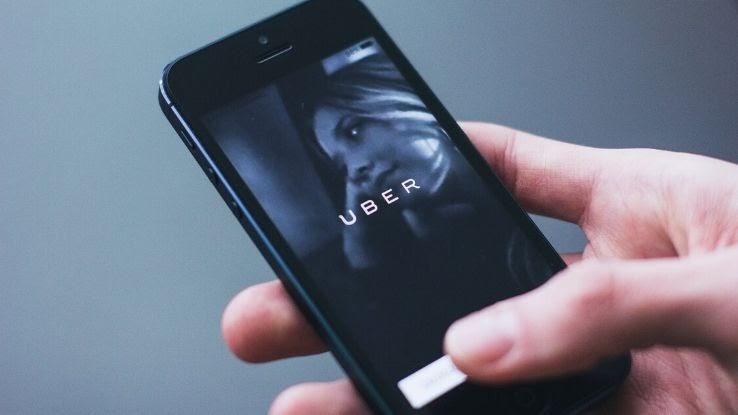
The controversial CEO reportedly ignored repeated sexual harassment claims in the company and behaved inappropriately in professional situations, prompting growing concern for Uber’s in-house and global reputation. After many controversies, he resigned in 2017 along with several other top company managers.
Jonah Peretti – BuzzFeed
BuzzFeed’s reputation tends to be questioned and criticized due to the diversity of content on the platform. When Jonah Peretti, the company’s CEO, had to let more than 200 employees go without warning, the controversial actions quickly became public knowledge.

The company was criticized for not paying its community contributors, including an unpaid teenager who brought in more than 130 million website views in 2018 with her quizzes. Peretti also came under fire after suggesting that people bring puppies to the office on the day of the layoffs, an action that many deemed to be insensitive.
Roger Ailes – Fox News
2017 was a huge year for controversies in the world of big business and CEOs, and many of those controversies ended up changing companies forever. Fox News was no stranger to controversy and scandal, but the network giant took a huge reputation hit in 2017.

The company’s CEO, Roger Ailes, and some top news anchors in the company were accused of multiple counts of sexual harassment. The anchors got their shows canceled, and Ailes was fired when more than a dozen women came forward to accuse him. In May 2017, Ailes passed away from hemophilia.
Lee Jae-yong – Samsung
Samsung faced its biggest controversy in 2016, thanks to issues with exploding batteries that hurt both people and the company’s reputation. Just a year later, the company came under fire for its questionable leadership. Samsung is family-run, with Lee Jae-yong once at the forefront.
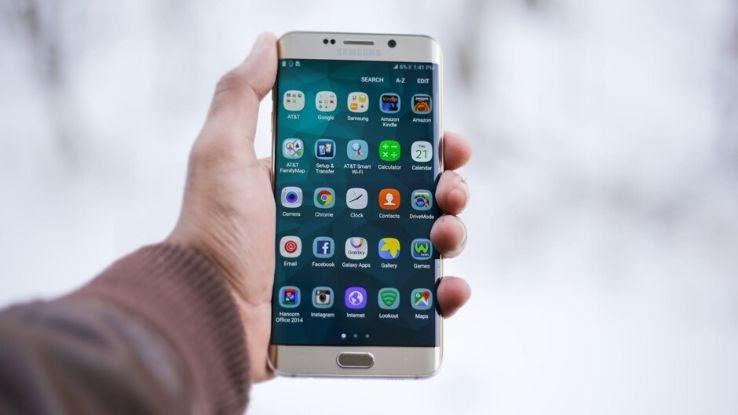
However, in 2017 Jae-yong was arrested based on accusations of embezzlement and corruption, which included bribing South Korea’s ex-president. He was released from jail in 2018, but his future with Samsung is unclear. The company was also guilty of several labor offenses, and antitrust concerns arose after Jae-yong’s bribery scandal.
Aubrey McClendon – Chesapeake Energy
Leadership comes in many shapes and forms, and some CEOs are known to be slightly more aggressive and reckless than others. In 2018, Chesapeake Energy’s CEO, Aubrey McClendon, made the news when he was questioned about the legitimacy of borrowing money from some of his investment wells.

It was revealed he had borrowed more than $1 billion for personal investments in wells that were initiated by Chesapeake. The reports completely tarnished the company’s reputation, with many believing Chesapeake was no longer a natural gas company, but rather a domain for McClendon’s personal ventures.
Andrew Mason – Groupon
Andrew Mason has been embroiled in quite a few controversies that directly hurt Groupon’s reputation with its investors as well as with consumers. The CEO struggled to move on from the company’s fun start-up life and came under fire plenty of times for his behavior, including one incident where he drank beer during one of the investor meetings.

Wall Street also started to lose faith in the company, claiming that Groupon had lost managerial focus and confidence. In 2012, CNBC named Mason the “Worst CEO of the Year,” claiming his antics put a bad image on the company’s corporate reputation.
Martin Shkreli – Turing Pharmaceuticals
One of the biggest pharma scandals was perpetrated by CEO Martin Shkreli, often dubbed one of the most hated men in America. Shkreli received global criticism in 2015 after raising the price of a common drug used to treat parasitic diseases.

It may be quite normal for drug companies to raise their pricing, but because of Shkreli’s decisions, this particular antiparasitic was being sold for $750 per pill instead of $13.50 per pill. He was also charged with securities fraud, resulting in a seven-year prison sentence and a fine of more than $7 million. He is currently in prison.
Bongani Nqwababa and Stephen Cornell – Sasol
Some companies have joint CEOs in order to complement each other’s business and leadership skills. Of course, that approach doesn’t always work out. Bongani Nqwababa and Stephen Cornell both agreed to resign after initiating a project that cost the company more than $12 billion and dramatically lowered Sasol’s share price by 44%.

An investigation into the project uncovered misconduct and incompetence at top management levels as well as financial communications with the co-CEOs. After the two executives resigned, the company’s share price went back up based on the hope of a better company culture and management.
Sanjay Kumar – Computer Associates International
The infamous 2004 Computer Associates International fraud scandal put the company’s reputation at risk. The multi-billion-dollar fraud involved the participation of many employees, from top-level management all the way down, but the primary person responsible was the CEO, Sanjay Kumar.

The company was accused of intentionally miscalculating its revenues in the previous quarter, committing a serious regulatory offense and harming the company’s relationship with its shareholders. It was proven that top management removed contract time stamps and did everything they could to falsely inflate sales and profits. Kumar was arrested in 2006 and released from prison in 2017.
John Fellows Akers – IBM
IBM’s reputation among employees (as well as non-employees) tends to be below average. In the late ’80s, the company’s CEO, John Fellows Akers, made some significant changes to speed up the process of delivering their products to the market.

He created three autonomous organizations within the company, but the strategy wasn’t successful. Instead, it resulted in huge business losses as well as more than 40,000 employees losing their jobs. He was ultimately removed by the board, and the company is still trying to rebuild IBM’s reputation with both consumers and employees.
Adam Neumann – WeWork
WeWork was without a doubt one of the most successful coworking and co-living startups — for a while. However, in 2019, the company’s downfall started when its CEO, Adam Neumann, began to lose the confidence of the company’s investors due to his inability to run the public corporation efficiently.

In the midst of brutal losses, Neumann stepped down from his CEO position, but not before he received almost $200 million in consultancy fees and almost $1 billion from selling WeWork stock to SoftBank. In 2019, Neumann was also sued by a former employee for sexual discrimination.
Kevin Plank – Under Armour
Under Armour has faced many challenges over the past decade, as the company has struggled to keep up with other sportswear brands like Nike and Adidas. It lost $200 million due to restructuring and layoffs, and many employees came forward with negative allegations about its CEO, Kevin Plank.

The company was criticized for its overly relaxed culture, which included regular company-paid trips to strip clubs. Plank was also part of an affair scandal with an MSNBC anchor. The company’s reputation took a hit with its shareholders, and Plank was forced to resign.
Mark Parker – Nike
2018 and 2019 were hard years for Nike’s PR team, as the company’s CEO, Mark Parker, was accused not only of a controversial doping scandal, but also sexual harassment and gender discrimination in the workplace. An investigation revealed emails of Parker communicating with coach Alberto Salazar about using performance enhancing drugs that wouldn’t be discovered by doping tests.
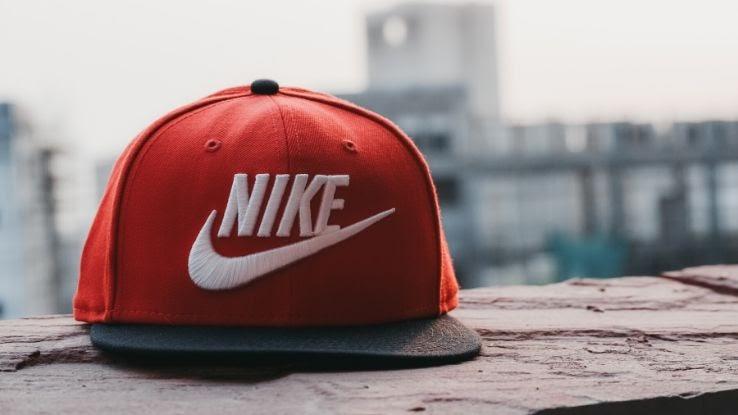
Two ex-employees sued the company, stating that the salaries of women were lower than salaries of men. Parker officially left Nike in 2019, along with several executives and the president of the Nike brand.
Jan Singer – Victoria’s Secret
Victoria’s Secret has reportedly struggled with sales and profits over the past couple of years. In 2018, the company’s CEO, Jan Singer, resigned when a Vogue interview with Victoria Secret’s chief marketing officer highlighted that the company’s controversial strategy was to market its products only to certain types of women.

The company has also been criticized for not responding to the consumer demand to put comfort before lace as well as failing to embrace inclusivity. Unable to satisfy these demands and restore the company’s reputation, Jan Singer resigned.
John McAfee – McAfee
McAfee’s former CEO, John McAfee, has led a life that could have been taken straight out of an intense crime movie. After relocating to Belize, McAfee was questioned by authorities as a person of interest in the murder of an American expatriate.

The interrogations made McAfee avoid Belize and relocate to Guatemala, where he proceeded to blog about his time on the run from the police. He was then arrested and almost faced deportation, but he faked two minor heart attacks to buy time for his lawyer to file an appeal. We couldn’t make up this kind of crazy if we tried!
Elon Musk – Tesla
Although Tesla is becoming more and more popular, Elon Musk is no stranger to outrageous controversies. He might not compare to some of the other CEOs on our list for bad management, but it has been reported that Musk is one of the toughest bosses out there.

In 2015, he reportedly scolded an employee for leaving for the birth of his child instead of staying at work. Tesla workers have also come forward to claim they were fired for taking sick or maternity leave. Apparently, the law means nothing to Musk, and the company has faced several lawsuits, including some related to discrimination and harassment.
Bernardo Hees – Kraft Heinz
Kraft Heinz faced a big shakeup in 2019 after its CEO stepped down in the wake of a huge value decline in the company’s stock price. Originally separate companies, Kraft and Heinz merged when they were acquired by 3G Capital.

Bernardo Hees took control of the company and came under fire for his strict management and bizarre rules, which included one that wouldn’t allow employees to bring rival food brands into the office. This had a dramatic effect on the company’s in-house reputation, especially after many layoffs and budget cuts related to operating and managing the company.
Marissa Mayer – Yahoo
Marissa Mayer has been named one of the worst CEOs in American history. Impressive, right? She took over Yahoo in 2012 in hopes of restoring the search engine’s greatness so it could compete with giants like Google. Her strategy involved acquiring 53 internet companies. However, apart from Tumblr, none of them made any significant noise in the online world.

Additionally, the Tumblr acquisition ended with its value decreasing by a staggering $230 million. She also prevented employees from working from home in an attempt to bring the team closer together again. None of the strategies worked and only resulted in layoffs and her official dismissal.
Kenneth Lay – Enron
Kenneth Lay was a huge figure in Enron’s early days, as it made its way to the top as an energy-trading giant. Unfortunately, bad business practices led to the company’s downfall. After investigators uncovered accounting fraud, the business’ stock price plummeted from $90 to $1, and its shareholders lost $11 billion.

The loss resulted in Enron filing for bankruptcy in what was one of the largest corporate bankruptcies in America. Lay and another Enron executive, Jeffrey Skilling, were arrested for fraud and conspiracy. Lay passed away from a heart attack during the sentencing phase of his trial. Skilling spent years in prison and was released in 2019.
Bernie Ebbers – MCI WorldCom
In 2002, the success of MCI WorldCom’s business ventures came to a crushing end. Bernie Ebbers, the company’s CEO, was involved in the largest accounting fraud in history, making a staggering $11 billion in misstatements. Ebbers was also accused of taking millions of dollars from the company for personal loans.

It was too late to save the company at that point. The huge scandal plummeted MCI WorldCom’s stock price, and the company’s shareholders lost more than $100 billion. Ebbers was arrested and sentenced to 25 years in prison. He is set to be released in 2028.
Mark Hurd – Hewlett-Packard
Mark Hurd may not be on the same level as some of the CEOs on our list, but that doesn’t mean he’s not guilty of some wrongdoing. He was fired as CEO of Hewlett-Packard after he was caught submitting inaccurate expense reports. To make matters worse, he tried to hide his relationship with a female contractor who was involved with the business.
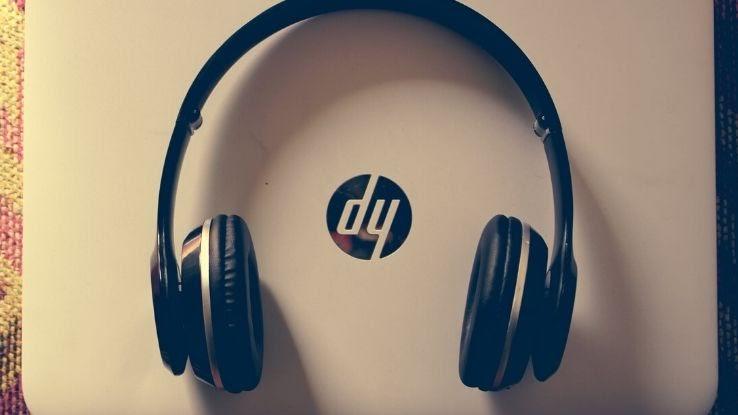
Hurd was fired for inaccurate expense reporting and demonstrating poor leadership skills that didn’t live up to CEO standards. The decision was unanimously made by the board, who stated that his “conduct undermined the standards” set for employees.
James McDermott – Keefe, Bruyette & Woods
Keefe, Bruyette & Woods is an investment bank that didn’t get by without a scandal in the late ’90s. The company’s CEO, James McDermott, was involved in a relationship with an adult film actress, Marilyn Star (also frequently styled as Marylin Star). He revealed confidential company information about a future merger, and Star passed the information on to another lover.

The couple used McDermott’s information to invest in the stock market and made more than $80,000. McDermott was arrested and forced to pay a fine of $230,000, while Star only faced a few months in jail.
Martha Stewart – Martha Stewart Living Omnimedia
Ah, Martha Stewart — what do you think about when you hear that name? Starting her catering company back in 1976, Stewart soon became a force to be reckoned with in the culinary world. She launched her own company, Martha Stewart Living Omnimedia, and that’s when things started to go downhill.

She was found guilty of conspiracy and insider trading and served five months in a minimum security prison. Although her brand recovered from the bad press, Stewart is often associated with time in prison as much as culinary success.
Abby Lee Miller – Abby Lee Dance Company
Abby Lee Miller is an infamous dance teacher and the owner of Abby Lee Dance Company. Climbing to fame due to the TV show Dance Moms, Miller showed the world her character as one of the toughest dance teachers around.

In 2015, her reputation took a hit when she was charged with bankruptcy fraud and hiding more than $700,000 in assets. She was convicted and sentenced to one year in prison. As of 2019, Miller is back teaching, but her reputation will never be the same again.
John Browne – BP
The John Browne scandal is slightly different than the others on our list. Browne, the CEO of BP, lied under oath when he was asked about his relationship with his boyfriend. Specifically, he lied about how they first met, saying they were both jogging in London when, in fact, they met through a male escort agency.
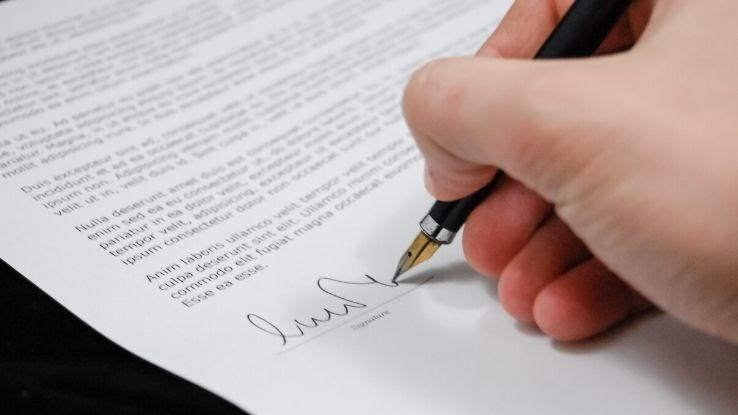
This resulted in a permanent dismissal from the company, mostly to ensure damage control before perjury accusations could hurt the brand. Browne also forfeited a multimillion-dollar severance package upon his exit.
David Edmondson – RadioShack
David Edmondson spent more than 10 years at RadioShack before revealing a shocking truth — he had lied on his CV. The CEO of the company claimed he had received a theology and psychology degree, but he actually only finished two semesters at a school where a psychology degree was never even offered.

In truth, he didn’t hold any degrees whatsoever. He admitted to lying on his resume in 2006 and resigned shortly after that. The discovery came about after Edmondson was arrested for DUI, and a newspaper started digging up information about his past.
Harry Stonecipher – Boeing
Boeing is no stranger to controversies from inside and outside the company. In 2003, Harry Stonecipher came out of retirement and became the company’s CEO, but he didn’t seem to learn anything from the former CEOs’ mistakes.

Affairs with employees are a huge no-no in the business world, and Stonecipher just didn’t listen. An investigation into his emails with one of his executives confirmed the affair, forcing Stonecipher to resign after just 18 months in the position. After news of the affair broke, his wife filed for divorce. At least it was for true love, as Stonecipher later married the employee.





